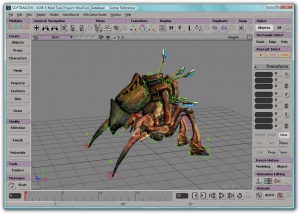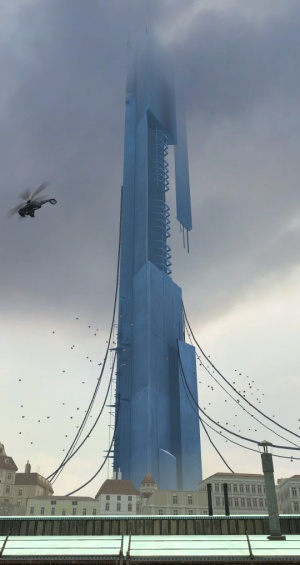3D model: Difference between revisions
No edit summary |
m (→See also) |
||
| Line 22: | Line 22: | ||
*[[:Category:Modeling]] | *[[:Category:Modeling]] | ||
*[[:Category:World Models]] | |||
*[[MDL]] (Source Model file format) | |||
*[[Model Viewer|Half-Life Model Viewer]] | *[[Model Viewer|Half-Life Model Viewer]] | ||
[[Category:Modeling]] | [[Category:Modeling]] | ||
[[Category:Glossary]] | [[Category:Glossary]] | ||
Revision as of 11:22, 5 April 2008

World Models are used in Hammer as pre-compiled world objects, as opposed to Brushes which are compiled during the map compile (VBSP). Hammer cannot edit Models. It can only place them, by tying them to entities such as prop_static, prop_physics, prop_dynamic, etc. npc_type, weapon_type and item_type entities usually use preset worldmodels (to ensure recognisable consistency in game).
View Models are specially animated and optimised models used for "player usable" weapons and hand tools.
Valve's Source Models were created and edited with XSI Mod Tool, which, although not bundled with the Source SDK tools, is free to download from XSI's website. Other model editors that can export models in SMD format can also be used to work with Source Models. (See Compiling Models.)
Why use a model?

- Detail
- The concentration of vertexes on a model is many, many times higher than on a world brush.
- Skeletal animation
- Detailed, efficient, believable animation can be achieved with a model. Walking, talking, running, jumping!
- Dynamism
- Unless specifically made to behave otherwise, a model's position, lighting, state and motion are all completely dynamic. They can go anywhere and do anything.
See also
- Category:Modeling
- Category:World Models
- MDL (Source Model file format)
- Half-Life Model Viewer